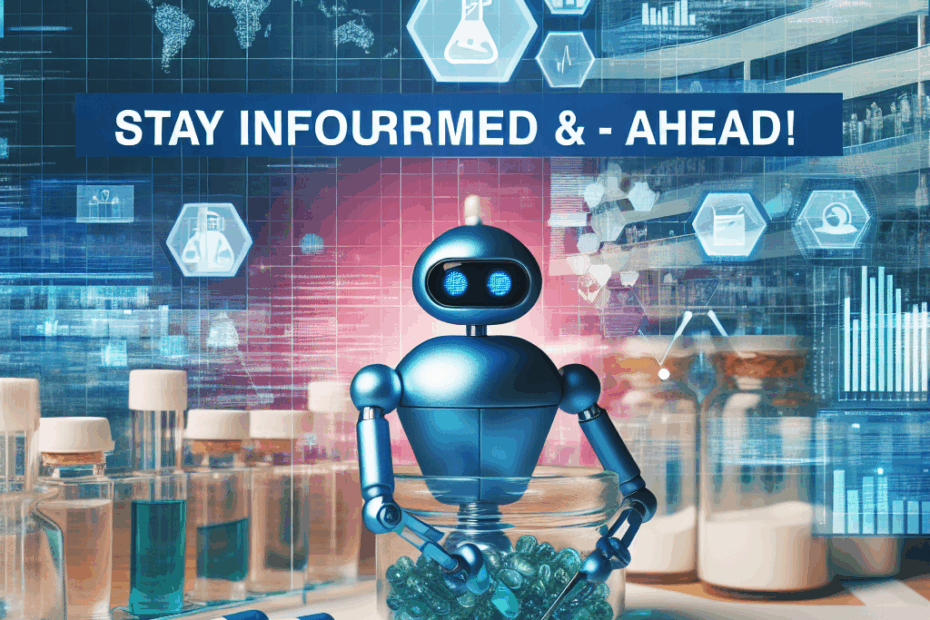Top 5 Reads to End Your Week Smarter (Explained Simply!)
Hey everyone, John here! Ready for a quick rundown of some interesting articles I’ve been reading? This week, we’re diving into healthcare and how it’s changing. I’ll break it down so it’s super easy to understand, even if you’re not a doctor or economist. Lila’s here too, ready to ask the questions you might be thinking!
AI is Coming to Drug Evaluation!
Okay, first up: the FDA (that’s the Food and Drug Administration, the folks who make sure our medicines are safe) is thinking about using AI (Artificial Intelligence, like computers that can learn and think a bit) to help evaluate new drugs.
Why is this a big deal? Well, evaluating drugs takes a lot of time and effort. AI could potentially speed things up and maybe even catch things that humans might miss.
Lila: John, what exactly does “evaluate” mean in this case?
John: Good question, Lila! When the FDA *evaluates* a drug, they’re basically checking to see if it’s safe and if it actually works. They look at all the research, the test results, and everything else to make sure it’s okay for people to use.
Hospital Mergers: Who’s Buying Whom?
Next, there’s a database keeping track of all the hospital mergers and acquisitions. Basically, it’s a list of which hospitals are buying other hospitals or joining forces.
Why is this important? When hospitals merge, it can change things like prices, the quality of care, and even what services are available in your community. Knowing who owns what is crucial.
Medicaid and Crime Rates: Is There a Connection?
This one’s a bit more complicated. Someone’s been looking into whether there’s a link between how generous a state’s Medicaid program is (Medicaid is a government health insurance program for people with low incomes) and the crime rate.
Lila: Whoa, John, how could those two things be related?
John: That’s the million-dollar question, Lila! The idea is that if people have better access to healthcare through Medicaid, it *might* reduce stress and improve their lives, which *could* then lead to lower crime rates. It’s not a direct cause-and-effect thing, but researchers are exploring the possibilities. It’s like wondering if a well-fed plant grows better – healthcare could be like the water and sunlight for people.
COVID-19 Vaccine Access: Limits are Here
This article discusses how there are limits being placed on who has access to the COVID-19 vaccine. This means it might be harder for some people to get vaccinated.
Why is this happening? Well, it depends on a lot of factors, like changes in government policies, supply and demand, and how the virus is spreading in different areas. It’s a constantly evolving situation.
AI for SLRs: Where Are We?
Finally, the last article explores the use of AI for SLRs.
Lila: Uh, John, what’s an SLR in this context?
John: Good clarifying question, Lila! In this case, SLR stands for Systematic Literature Reviews. It’s a super thorough and organized way of looking at all the research that’s been done on a particular topic. Think of it like doing a really, really deep dive into all the available information. So, the article is asking how AI can help with those deep dives.
Why is this useful? SLRs are super helpful in healthcare because they help us figure out what treatments work best and what the latest evidence says. AI could make the process faster and more efficient, helping us make better decisions about healthcare.
Wrapping Up
So, that’s the quick and easy version of this week’s top reads! We’ve got AI potentially revolutionizing drug evaluation and literature reviews, a database tracking hospital mergers, a study linking Medicaid to crime rates, and changes in COVID-19 vaccine access. Lots to think about!
My thoughts: I think the use of AI in healthcare is particularly interesting. It has the potential to make things much more efficient and improve patient outcomes. It will be interesting to see how it plays out!
Lila’s thoughts: As someone who’s not a healthcare expert, I found the explanation about Medicaid and crime rates the most surprising. It’s interesting to see how different things can be connected in unexpected ways.
This article is based on the following original source, summarized from the author’s perspective:
Top 5 Reads to End Your Week Smarter
